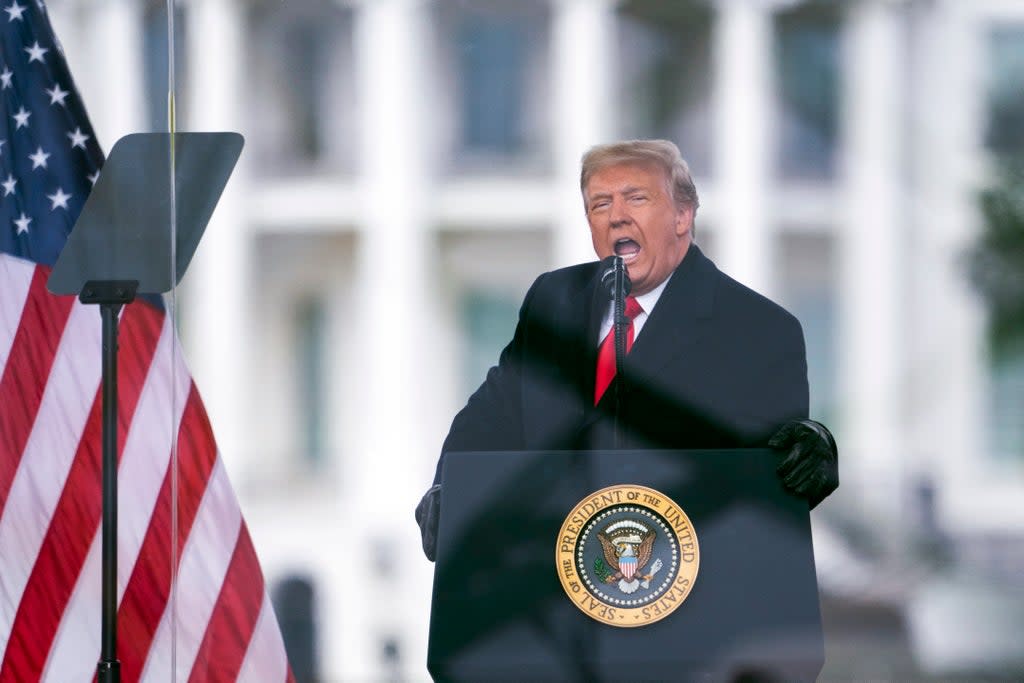Judge says Trump can’t use ‘outlandish’ argument to move lawsuit accusing him of disenfranchising Black voters

- Oops!Something went wrong.Please try again later.
Donald Trump and the Republican Party cannot use an “outlandish” argument to move a lawsuit claiming they conspired to deny Black people of their voting rights during the 2020 election, according to a ruling from a federal judge in Washington DC.
“This Court is presented with an argument that is perhaps as unprecedented as it is outlandish: the former President of this country denying that he lived in and had minimum contacts with the country’s capital and the White House during his time as President,” Judge Emmet G Sullivan of the US District Court for the District of Columbia wrote in his ruling.
The controversy stems from a lawsuit filed in November 2020. The suit, which names Mr Trump as well as the Republican National Committee, alleges that the Trump campaign and its allies attempted to suppress the Black vote in cities like Detroit, Milwaukee, and Atlanta, all of which have large communities of colour.
Mr Trump and the RNC have denied these allegations, and were partially successful on Friday in getting the court to drop Voting Rights Act claims against them, while allowing other claims under the Reconstruction-era Ku Klux Klan Act to remain intact for now.
“Under the specter of preventing ‘fraud,’ defendants engaged in a conspiracy, executed through a coordinated effort, to disenfranchise voters by disrupting vote counting efforts, lodging groundless challenges during recounts, and attempting to block certification of election results through intimidation and coercion of election officials and volunteers,” the lawsuit states. “These systematic efforts – violations of the VRA and the Ku Klux Klan Act – have largely been directed at major metropolitan areas with large Black voter populations. These include Detroit, Milwaukee, Atlanta, Philadelphia, and others. Defendants have not directed these efforts at predominantly white areas.”
In February, a federal judge of the same court allowed lawsuits from Democratic members of Congress making KKK Act claims to go forward.
In doing so, the DC court rejected arguments from the Trump camp that official immunity for carrying out his duties as president shielded him from claims under the law, which prohibits political intimidation.
“To deny a President immunity from civil damages is no small step. The court well understands the gravity of its decision,” Judge Amit Mehta wrote at the time. “But the alleged facts of this case are without precedent, and the court believes that its decision is consistent with the purposes behind such immunity.”
